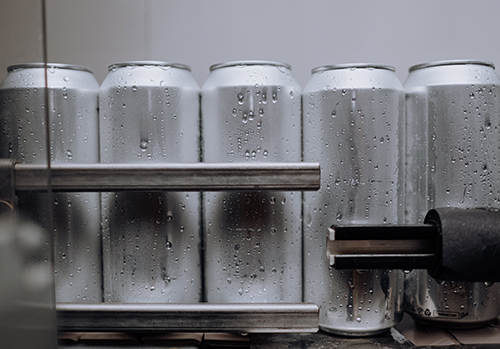
Photograph by Cottonbro Studio on Pexels.
Why are energy drinks bad for you?
The Centers for Disease Control and Prevention (CDC) defines energy drinks as beverages containing large portions of caffeine, added sugars, other additives, and legal stimulants such as guarana, taurine, and L-carnitine. These ingredients can boost your alertness, attention, and energy. They may also increase your blood pressure, heart rate, and breathing. Consuming energy drinks may also cause restless nights battling insomnia, dehydration, anxiety, and irregular heartbeat. That is a lot of negative side effects. The excessive use of these drinks could also lead to heart failure and diabetes. Unfortunately, many consumers of these drinks mix alcohol with their energy drinks. That can be a dangerous combination. In 2017, Roemer and Stockwell examined a systematic literature review concerning people who consume a mixture of energy drinks and alcohol. The researchers also assessed these individuals’ potential for risk of injury and discovered that those who consumed this drink combo increased their chances of hurting themselves.
Many energy drinks are marketed toward young people as well. The CDC advises teenagers and children not to drink these products due to their high caffeine and sugar-additive content. The agency states that up to 50 percent of adolescents admit to drinking energy drinks, and additional research notes that some secondary schools allow energy drinks to appear in vending machines, school stores, and snack bars. A 2011 study records that 1,499 adolescents ages 12 to 17 went to the emergency room for an energy-drink-related emergency that year. Additionally, researchers found over 20,000 emergency room visits among all ages were due to energy drink consumption in 2011.
What are the benefits of energy drinks?
So, why do people consume a substance that causes so much harm? Energy drinks offer a handful of temporary misguided benefits. They promise a boost in mental performance and increase energy efficiency. Many of these drink products boast large quantities of sugar, b vitamins, caffeine-infused guarana, and ginseng that may positively impact brain function.
In 2001, researchers Alford, Cox, and Wescott examined the effects a specific energy drink has on a person’s mood and body. The scientists conducted three studies with 36 participants. The results displayed improved performance on multiple fronts. This energy drink significantly improved the participants’ anaerobic performance by maintaining maximum speed and a 65-75 percent maximum heart rate, showing improved aerobic endurance on stationary exercise bikes. Furthermore, the study showed the Red Bull energy drink improved mental abilities related to alertness, including better memory, concentration, and reaction time. Kennedy and Scholey’s 2004 study also found similar results and that less mental fatigue occurred after consuming an energy drink.
Other research in 2011 indicates that drivers drinking an energy drink improved their driving performance and reduced their sleepiness during extended periods of driving. These scientists evaluated 24 healthy volunteers’ driving abilities with a driving simulator. Subjects drove for two hours in the simulator, then drank an energy drink or a placebo. Next, they each drove another two hours on the simulator. Each driving parameter improved after participants consumed the energy drink.
These benefits might give you the impression that consuming energy drinks is fine. But are the short-term benefits worth risking your health to heart problems, increased stress, and sleepless nights?
What are healthier options compared to energy drinks?
There are other ways to increase your energy to fuel your day. Did you know eating an apple can give you as much energy as one cup of coffee? The apple’s natural sugar provides more energy than coffee’s caffeine. Eating Greek yogurt can also help give you much-needed energy and nurture your brain functions. A 2016 study discovered workers who ate 100 grams of probiotic yogurt each day experienced less anxiety, depression, and stress than those who did not consume yogurt.
Have Health Insurance Questions?
We hope that this information on energy drinks is helpful for you.
Insurance is oftentimes overwhelming, and we want to shed light on the industry by answering your questions. Comment below and your question may be the topic of our next post!
If you liked this article, share it with your friends!
Empower Brokerage wants to help you find the insurance coverage you need and help you save money getting it. Stay on top of your health and give us a call at (844) 410-1320.
Get affordable health insurance quotes by clicking here.
See our other websites:

